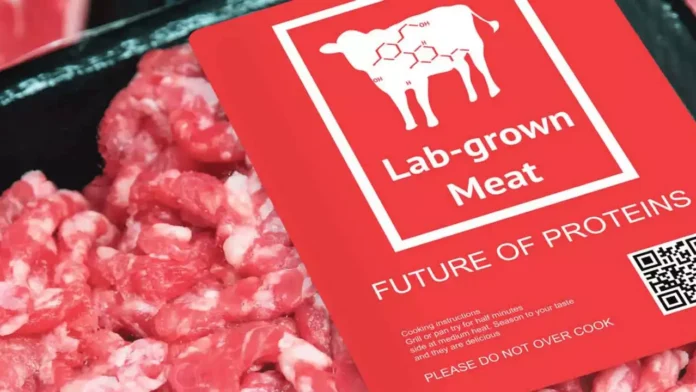Austrian, French, and Italian delegations are set to oppose cultivated-meat production at the upcoming meeting of EU agriculture ministers taking place this week.
In a communication addressed to the Council of Ministers, the countries described the industry as a “threat to primary farm-based approaches.”
They also expressed concern that it jeopardized “authentic food production methods that form the core of the European farming model.”
“We recall that the EU has never delivered any authorisation on animal products based on cell cultivation techniques so far,” the delegations added.
“Hence, a transparent, science-based and comprehensive approach is necessary to assess the development of artificial cell-based meat production, which in our view does not constitute a sustainable alternative to primary farm-based production.”
The delegations of Czechia, Cyprus, Hungary, Luxembourg, Lithuania, Malta, Romania and Slovakia have supported the argument.
The note also asserts that cultivated food production “raises many questions that have to be thoroughly discussed between the member states, the Commission, stakeholders, and the general public” before it can be considered a viable method for producing food.
Some of the questions proposed revolve around ensuring the safety of lab-grown meat and addressing ways to prevent the creation of monopolies or oligopolies in the food market.
The document also expresses concerns regarding the “actual carbon footprint” of lab-grown meat and questions whether the process provides improved standards for animal welfare.
In a statement, Alex Holst, senior policy manager from the alternative proteins non-profit, the Good Food Institute Europe, said, “This non-binding statement spreads misinformation about cultivated meat and undermines Europe’s world-leading regulatory system.
“The EU’s Horizon programme and countries like Germany, Spain and the Netherlands have already invested in cultivated meat, recognising its potential to improve food security, reduce emissions, and satisfy growing demand for meat.
“Overhauling the gold standard Novel Foods regulatory process now is completely unnecessary, and risks preventing the EU from taking a leading role in this sector – just as the United States and China invest in cultivated meat to boost their economies and create future-proof jobs.”
In an interview with the European news site Euractiv, a diplomat described the action as “highly exaggerated and premature.”
“It’s a sector that does not yet exist, at this point it’s about innovation in a lab. Suppressing this now only hinders the kind of innovation that is precisely necessary for sustainability,” they said.
The note marks a new push against cultivated meat in Italy. Lawmakers in the country approved a ban on the manufacture, sale, and import of the product last November.
Continue Exploring: Italy becomes first EU country to prohibit cultivated meat production
Although the national Chamber of Deputies has accepted the bill, it still awaits the final approval from the EU.
To date, Singapore, the United States, and Israel stand as the only countries globally that have sanctioned the production of cultivated meat.
Last week, Israel became a recent addition to this roster by granting approval to Aleph Farms for its cultivated beef product, Petit Steak.
In 2020, regulatory approval was granted to Eat Just’s subsidiary, Good Meat, for its cultivated chicken in Singapore.
Last year, Eat Just and another U.S. entity, Upside Foods, secured approval to manufacture and market their cultivated chicken in the U.S. market.





